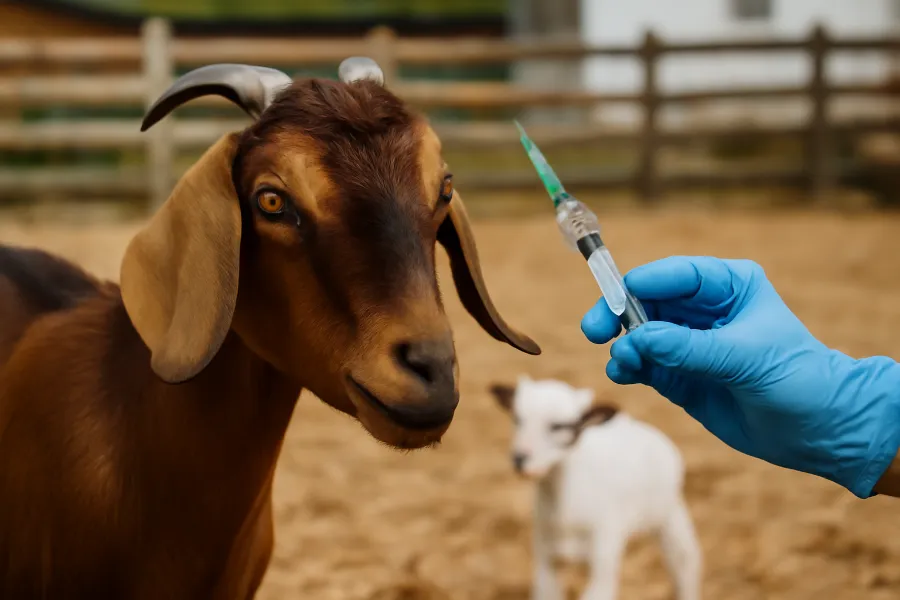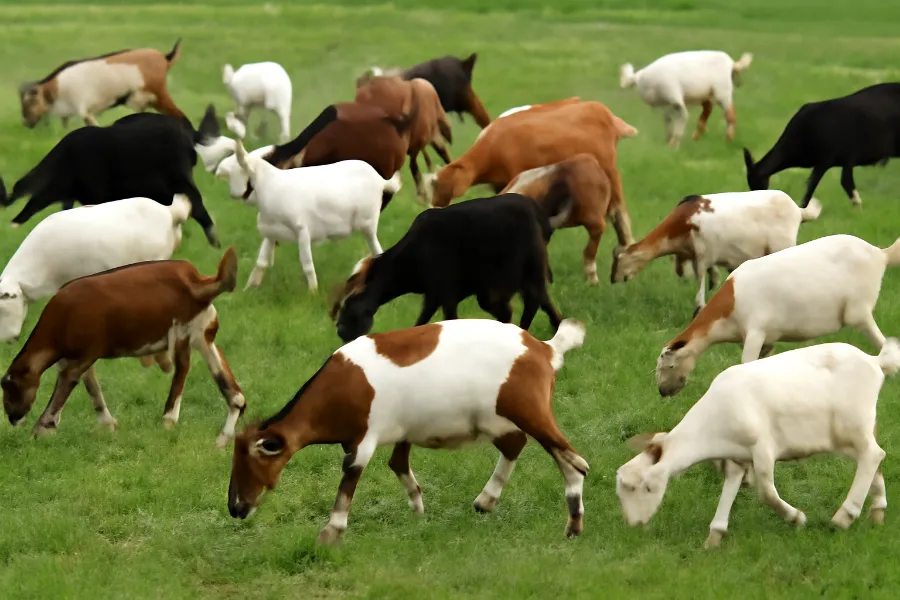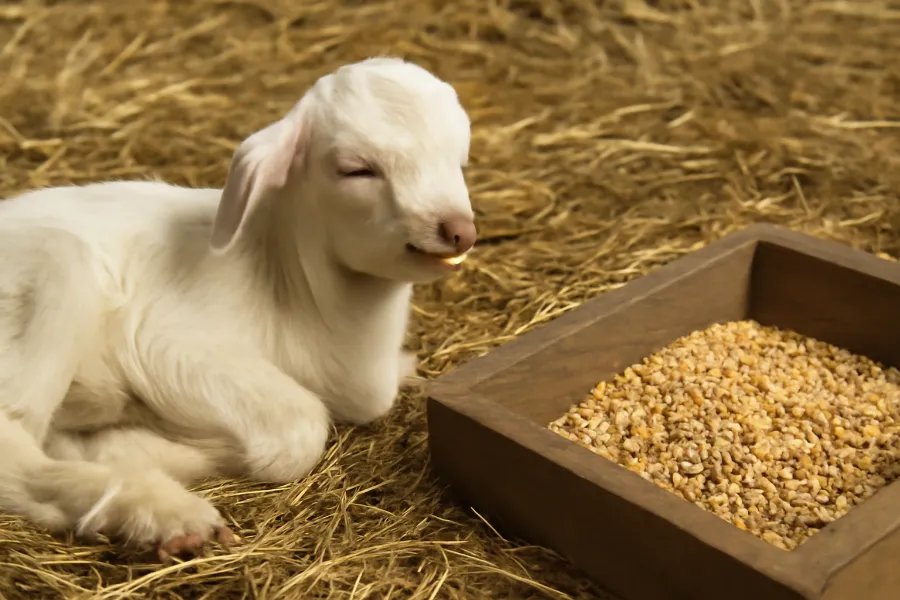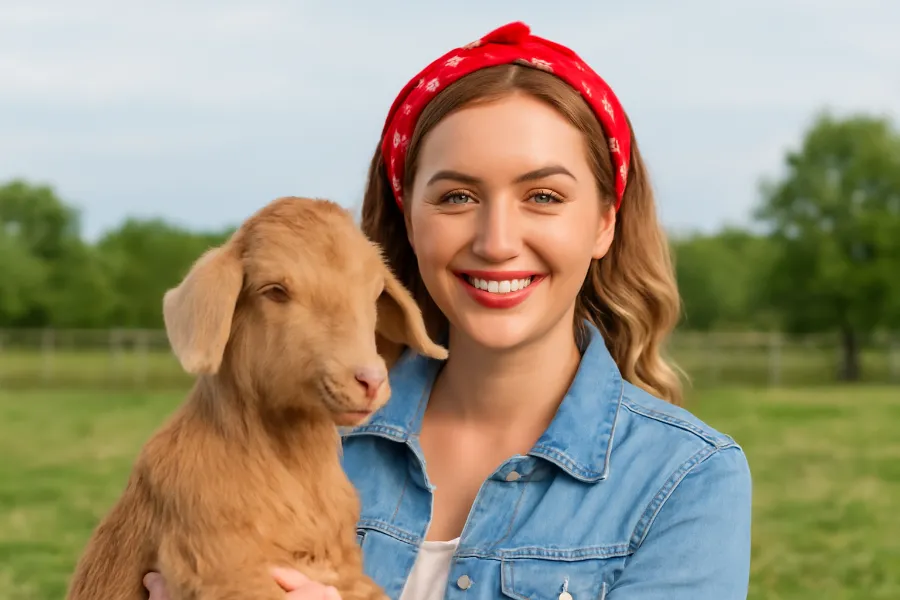If you’re raising goats—whether for milk, meat, or as beloved companions—one of the most important steps you can take to ensure their health is administering the CDT vaccination for goats. This simple yet vital vaccine protects against two potentially fatal diseases: enterotoxemia and tetanus. In this post, I’ll walk you through what the CDT vaccine is, why it’s crucial, how to administer it, and how to incorporate it into your goat vaccination schedule.
Vaccination isn’t just about protecting your animals; it’s about being proactive in maintaining a healthy, thriving herd. There’s a lot to learn about these vaccines and how they can save your goats’ lives. Let’s break it down so you can make informed decisions for your farm.

What Is the CDT Vaccine for Goats?
The CDT vaccine is a combination vaccine that protects goats from Clostridium perfringens types C and D, which cause enterotoxemia, and from Clostridium tetani, the bacterium responsible for tetanus. Both of these diseases are caused by bacteria that can be present in a goat’s environment or even arise from injuries, and they can be fatal if not treated promptly. Vaccination helps to prevent these diseases, making it an essential part of a goat’s healthcare routine.
Enterotoxemia (Overeating Disease)
Enterotoxemia, also known as overeating disease, occurs when Clostridium perfringens bacteria proliferate in the goat’s intestines. This can happen when goats suddenly consume a large amount of grain or rich pasture. The bacteria release toxins that can overwhelm the animal’s system, leading to shock and death in a matter of hours. The CDT vaccine helps to neutralize these toxins and prevent the disease from taking hold, especially in young kids who are more vulnerable.
Tetanus in Goats
Tetanus, caused by the Clostridium tetani bacteria, is typically associated with puncture wounds or deep cuts. Goats often sustain injuries from rough terrain, sharp objects, or barbed wire. Once the bacteria enters the bloodstream through these open wounds, it produces a toxin that affects the nervous system, leading to severe muscle spasms, difficulty swallowing, and ultimately paralysis. If untreated, tetanus can be fatal. The CDT vaccine provides immunity against this potentially life-threatening disease.
By vaccinating your goats with CDT, you are effectively providing them with protection against these two severe conditions, reducing the risk of sudden illness and death.
Importance of Goat Vaccination
Vaccination is one of the most cost-effective ways to protect your goats. Goat vaccination programs are designed to prevent common diseases that can cause loss of livestock, which is both financially and emotionally devastating. Here’s why vaccinating your goats is critical:
Preventing Sudden Death
Diseases like enterotoxemia and tetanus often cause sudden death. Enterotoxemia can strike within hours of a goat consuming a large quantity of grain, and tetanus can progress quickly after an injury. Without the CDT vaccine, your goats are left vulnerable to these deadly diseases. Vaccinating gives your goats the best chance of surviving exposure to these pathogens.
Minimizing Veterinary Costs
Treating diseases like enterotoxemia and tetanus can be very costly, especially when they require intensive care or surgical intervention. Vaccinating your goats is an upfront cost that can save you hundreds or even thousands of dollars in veterinary bills. Additionally, when you prevent illness, you avoid lost productivity from sick goats or the emotional toll of having to euthanize an animal that could have been saved with a simple vaccination.
Maintaining a Healthy Herd

A healthy herd is a productive herd. Vaccinations like CDT prevent disease from spreading, ensuring that your goats stay healthy and strong. This helps maintain milk production, meat yield, and overall herd performance. Whether you’re running a small farm or a larger operation, vaccinations are essential for the longevity and productivity of your herd.
Establishing a Vaccination Schedule for Goats
A clear vaccination schedule for goats is crucial to ensure your herd remains protected throughout their lives. By following the right schedule, you can ensure that each goat gets the correct dose of vaccine at the right times.
Kids (Baby Goats)
Young goats (kids) are particularly vulnerable to diseases like enterotoxemia because their digestive systems are still developing. The first CDT vaccine should be administered when they are 6–8 weeks old. After that, a second dose should be given at 10–12 weeks to boost immunity. This initial vaccination is essential for protecting them from enterotoxemia and ensuring their survival as they grow.
Adult Goats
For adult goats, a booster shot is necessary every 6–12 months to ensure continued protection. Adult goats that aren’t regularly vaccinated may be at risk of developing enterotoxemia or contracting tetanus from an injury. The timing of this booster can depend on various factors, such as the goat’s exposure to new environments, potential injuries, or breeding status.
Pregnant Does
Pregnant does should receive a booster shot 30 days before kidding. This is to ensure that the antibodies from the vaccination are passed through the colostrum (the first milk) to the newborn kids. Colostrum is critical because it provides the newborns with the initial immunity they need to fight off diseases in their early weeks of life. Without the CDT vaccine, the kids are left unprotected, and this can be particularly risky if they are exposed to contaminated feed or water.
Injuries or Surgeries
If a goat sustains an injury or undergoes surgery, it’s important to consider a tetanus booster immediately. Even if the goat is due for a regular CDT vaccination, an extra dose following an injury can help prevent tetanus from taking hold.
Understanding Enterotoxemia and Tetanus in Goats
To fully understand the need for the CDT vaccine, it’s helpful to know the diseases it prevents.
Enterotoxemia (Overeating Disease) in Goats

Enterotoxemia is a serious condition that most commonly affects young goats, especially kids that are suddenly overfed grains or concentrates. When goats overeat or consume food they aren’t accustomed to, their intestines become overwhelmed by the overgrowth of Clostridium perfringens bacteria. These bacteria produce toxins that can cause damage to internal organs, and the goat may die suddenly, often with little to no warning.
Symptoms of enterotoxemia include:
- Sudden death, often within hours
- Abdominal pain and bloating
- Diarrhea or bloody stool
The best way to prevent enterotoxemia is through vaccination with the CDT vaccine, which prevents the bacteria from producing toxins in the intestines.
Tetanus in Goats
Tetanus is caused by the Clostridium tetani bacteria, which can enter the body through open wounds. These wounds could be from barbed wire, sharp rocks, or other injuries that are common in outdoor goat environments. Once the bacteria enters the bloodstream, it produces toxins that affect the nervous system, leading to symptoms such as:
- Muscle stiffness, particularly in the face and jaw (lockjaw)
- Difficulty swallowing
- Muscle spasms and paralysis
Tetanus can be fatal if left untreated, and it can progress rapidly. Immediate vaccination following an injury is often the best way to prevent the disease.
How to Administer the CDT Vaccine to Goats
Administering the CDT vaccine to goats is relatively simple. Here’s a step-by-step guide:
- Prepare the Vaccine: Shake the bottle gently before use to ensure the vaccine is well mixed.
- Select the Injection Site: The best place for subcutaneous injection is the loose skin behind the goat’s shoulder. This area allows for easy administration and proper absorption of the vaccine.
- Administer the Vaccine: Draw the correct amount of vaccine into the syringe. Using a 1–3 cc syringe with a 18–20 gauge needle, inject the vaccine just under the skin. Make sure the needle is inserted at a 45-degree angle.
- Massage the Injection Site: After the injection, gently rub the area to help distribute the vaccine and reduce the risk of swelling.
Be sure to follow the manufacturer’s instructions for dosage and injection technique. If you’re unsure about the process, consult your veterinarian.
Consequences of Not Vaccinating Your Goats
Skipping the CDT vaccination can have serious consequences for your herd. Here are some risks associated with failing to vaccinate:
- Sudden Death: Without the CDT vaccine, goats are vulnerable to both enterotoxemia and tetanus. These diseases can cause sudden, fatal illness.
- High Veterinary Costs: Treating enterotoxemia and tetanus is costly, and even with treatment, the results are not always successful. Vaccination is much more affordable.
- Risk to Newborn Kids: If pregnant does are not vaccinated, their kids are left unprotected against deadly diseases. The vaccine ensures the kids get immunity through their mother’s colostrum.
Final Thoughts
The CDT vaccination for goats is an easy, affordable way to protect your goats from dangerous diseases like enterotoxemia and tetanus. By establishing a solid goat vaccination schedule, you ensure your goats stay healthy, happy, and productive. Whether you’re a first-time goat owner or have been raising goats for years, make sure the CDT vaccine is part of your herd’s health plan. It’s a small step that can make a big difference in preventing serious illness and keeping your goats safe.
Always consult with your veterinarian for personalized advice on vaccination schedules and other health care tips for your goats. With the right vaccination program, you can give your herd the best chance at a long, healthy life.
FAQs
The CDT vaccine for goats protects against enterotoxemia (overeating disease) and tetanus. It is a combination vaccine that helps prevent these potentially fatal diseases caused by Clostridium perfringens and Clostridium tetani.
Kids should receive the first dose of the CDT vaccine at 6–8 weeks and a booster at 10–12 weeks. Adult goats should be vaccinated annually, and pregnant does should receive a booster 30 days before kidding.
The CDT vaccine prevents serious diseases like enterotoxemia and tetanus, which can lead to sudden death or costly treatments. Vaccination ensures the health and longevity of your goats.
Yes, adult goats should receive an annual CDT vaccine booster. This helps maintain immunity and protects them from potential exposure to enterotoxemia or tetanus.
Failure to vaccinate your goats puts them at risk for sudden death from enterotoxemia or tetanus. These diseases can progress quickly, leading to costly treatments or loss of animals.
The CDT vaccine is administered via a subcutaneous injection, typically behind the shoulder. Use a syringe with a 18–20 gauge needle and gently massage the area after injection.
Yes, pregnant does should receive a CDT vaccine booster about 30 days before kidding. This ensures that the antibodies are passed to the kids through the colostrum, providing early protection.













